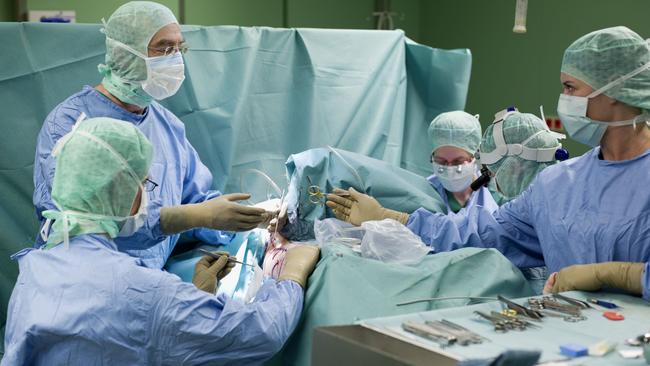Study examines whether general anaesthetic has an impact on children’s development
CONCERNS over the impact of general anaesthetics on developing minds have been addressed in a new study that reviewed almost two decades of research. Here’s what it found.

VIC News
Don't miss out on the headlines from VIC News. Followed categories will be added to My News.
SINGLE periods of being anaesthetised for surgery do not have any significant impact on a young child’s brain or development, a collaboration of Australian paediatric hospitals has found.
However, consideration could be given to delaying procedures for rare cases where children need multiple extended general anaesthetics if possible, a gathering of anaesthetists has been told.
MORE NEWS: EAGLES RESPOND TO MISSING COUSINS RUMOUR
THE OLIVIA SCENES THAT SHOOK DELTA GOODREM
MORRISON’S ELECTION CASH HANDOUT
In response to growing concerns over the impact of general anaesthetics on developing minds, specialists from three of the nation’s leading children’s hospitals reviewed almost two decades of research before issuing a statement to ease parents’ anxiety.
They found being under anaesthetic for three hours had no impact on a child under three and did not lead to reduced developmental scores.
While there was found to be a “modest reduction” in the development of children who underwent multiple procedures before their third birthday, the researchers stated the impact was more likely due to their actual illness rather than exposure to drugs.
The joint statement by anaesthetists, surgeons and neonatologists was issued yesterday at the annual scientific meeting of the Australian and New Zealand College of Anaesthetists.
It comes after a study of almost 40,000 NAPLAN scores found children who had a general anaesthetic in the first four years of life had worse literacy and numeracy skills than those who had not had an anaesthetic.

Co-convener of the statement, paediatric anaesthetist Jonathan de Lima of The Children’s Hospital, said there was no need to change current practice.
“Single exposure to anaesthetic does not increase the risk of learning disability,” Dr de Lima said.
“There is a lot of evidence suggesting there is an association, we can see that very clearly. (But) Much of what we have seen is explained by confounding effect, of the indication for surgery.”
After analysing studies from the US, Denmark, Taiwan, Canada and Sweden, as well as the recent NSW NAPLAN data, Dr de Lima said there was no relevant risk of autism, learning disabilities, behavioural disorders and academic achievement posed by single periods under anaesthetic.
Grant McArthur attended the Sydney conference as a guest of ANZCA.


